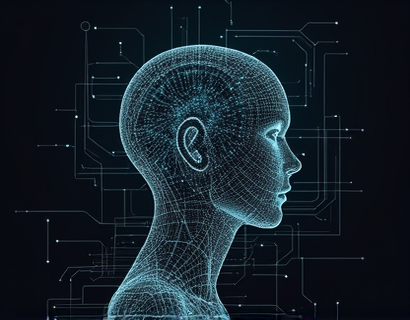Maximize Your Productivity with Intelligent AI Task Management
In today's fast-paced world, managing both personal and professional tasks efficiently is crucial for success. The integration of advanced AI technology into task management systems offers a revolutionary approach to streamlining workflows and enhancing productivity. Intelligent AI agents are designed to understand, predict, and automate tasks, allowing individuals and businesses to focus on high-priority activities that drive growth and achievement. This article delves into how these cutting-edge solutions can redefine task management, providing a smarter and more efficient way to handle daily responsibilities.
Understanding AI Task Management
AI task management leverages machine learning algorithms to analyze patterns, learn from user behavior, and automate repetitive tasks. These intelligent agents can prioritize tasks based on urgency and importance, ensuring that critical activities receive immediate attention. By integrating AI into task management, users can benefit from real-time insights, automated reminders, and smart suggestions that optimize their workflow.
The core functionality of AI task management systems includes task creation, scheduling, reminders, and progress tracking. Advanced features may also encompass natural language processing for voice commands, integration with calendars and other productivity tools, and predictive analytics to forecast task completion times and resource allocation. This comprehensive approach not only simplifies task management but also enhances overall productivity.
Benefits for Personal Productivity
For individuals, AI task management offers a personalized and adaptive solution to stay organized and focused. One of the primary benefits is the reduction of cognitive load. By offloading the responsibility of remembering tasks and deadlines to an AI agent, users can free up mental space for more complex and creative thinking. This shift allows for better concentration on high-value activities that require human intuition and decision-making.
AI agents can also help in breaking down large projects into manageable tasks, setting realistic deadlines, and providing regular progress updates. This structured approach ensures that personal goals are not only set but also achieved systematically. Additionally, the ability to delegate tasks and manage multiple projects simultaneously can lead to a more balanced and fulfilling personal life.
Enhancing Professional Productivity
In a professional setting, the impact of AI task management is equally transformative. Business professionals often juggle multiple projects, meetings, and deadlines, making it challenging to maintain efficiency and accuracy. AI agents can streamline these processes by automating routine tasks such as scheduling meetings, sending reminders, and updating project statuses. This automation not only saves time but also reduces the risk of human error.
Moreover, AI can provide valuable insights through data analysis, helping managers make informed decisions about resource allocation and team performance. By identifying bottlenecks and optimizing workflows, AI task management tools can significantly boost productivity and contribute to the overall success of a business. The ability to collaborate seamlessly with team members through integrated communication features further enhances the effectiveness of these tools.
Seamless Integration and User Experience
One of the key advantages of AI task management systems is their seamless integration into existing workflows. These tools can be easily incorporated into popular productivity platforms such as Google Calendar, Trello, and Asana, ensuring a smooth transition for users. The intuitive user interface and voice command capabilities make it accessible for users of all technical backgrounds, promoting widespread adoption and usage.
Customization is another critical aspect, allowing users to tailor the AI agent's behavior to their specific needs and preferences. Whether it's adjusting the level of automation, setting custom reminders, or integrating with other apps, the flexibility of these systems ensures a personalized experience that enhances productivity without adding unnecessary complexity.
Case Studies and Real-World Applications
To better understand the practical applications of AI task management, let's explore a few real-world scenarios. In a creative agency, an AI agent can manage project timelines, assign tasks to team members based on availability and expertise, and send automated updates to stakeholders. This ensures that projects stay on track and that everyone is aligned with the latest developments.
For a remote worker managing multiple freelance projects, an AI agent can prioritize tasks based on client deadlines, automate invoicing, and provide daily summaries of progress. This level of organization helps maintain a high level of productivity despite the challenges of working from home.
In a corporate environment, AI task management can optimize meeting schedules by analyzing participants' availability and suggesting optimal times. It can also track project milestones, generate reports, and identify areas for improvement, contributing to more efficient operations and better outcomes.
Challenges and Considerations
While the benefits of AI task management are substantial, there are several challenges and considerations to keep in mind. One of the primary concerns is data privacy and security. Users must ensure that the AI tools they adopt comply with data protection regulations and offer robust security measures to safeguard sensitive information.
Another consideration is the initial learning curve associated with adopting new technology. While most AI task management tools are designed to be user-friendly, some users may require training or support to fully leverage the system's capabilities. Providing comprehensive onboarding and ongoing support can help mitigate this issue.
Additionally, over-reliance on AI can lead to a decrease in manual task management skills. It's essential to strike a balance between automation and personal involvement to maintain a well-rounded skill set.
Future Trends in AI Task Management
The future of AI task management is promising, with ongoing advancements in machine learning and natural language processing. One trend is the increasing sophistication of AI agents, enabling them to understand context and nuance in tasks, leading to more accurate and efficient task management. The integration of AI with other emerging technologies such as augmented reality and the Internet of Things (IoT) can further enhance productivity by creating more interconnected and intelligent work environments.
Another area of development is the personalization of AI agents, allowing them to learn from individual user patterns and preferences over time. This continuous learning capability will make AI task management even more intuitive and effective, adapting to the unique needs of each user.
Conclusion
Intelligent AI task management represents a significant leap forward in productivity tools, offering a blend of automation, personalization, and insight-driven decision-making. By integrating these advanced solutions into both personal and professional life, individuals and businesses can achieve a higher level of efficiency and success. As the technology continues to evolve, the potential for even greater productivity gains is immense, making AI task management an essential tool for anyone looking to maximize their potential.











































